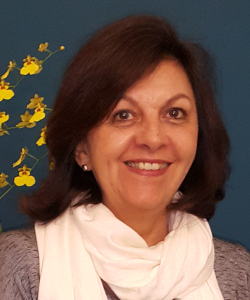Maria Candida S. Soares

Maria Candida S. Soares holds a psychology degree from PUC-RJ (1973). She initiated her clinical training at IBRAPSI (Brazilian Institute for Psychoanalysis, Groups and Institutions), attending adults in her private practice. In the 1990’s she felt the need for new sources of tools and theories, and, therefore, studied Brief Psychotherapy based on ISTDP and more specifically, the Leigh McCullough’s theory, and graduated from the Department of Psychiatry at Santa Casa da Misericordia Hospital in Rio de Janeiro (1998). After graduation from this course, she became part of the staff as teacher and supervisor and conducted therapeutic groups for eating disorders and unemployed people. Her first encounter with AEDP happened when Diana Fosha came to Brazil to facilitate a workshop in 2000. The focus on the relational dyad, the clear picture of emotional moments expressed during the session and the human approach were some of the AEDP elements that enchanted and captivated her. Since then Maria Candida participated in the following activities: The Clinical Phenomenology of Emotion – Workshop facilitated by Diana Fosha and Leslie Greenberg (Adelphi University, New York, 2002); Immersion Course I (New York, 2011) and Immersion Course II with Diana Fosha (Esalen, CA, 2012); and Core Training plus supervision with Kari Gleiser. She was certified both as AEDP psychotherapist (2014) and AEDP supervisor (2015).
In 2006, after translating Diana Fosha’s book The Transforming Power of Affect to Portuguese, she and Regina Pontes launched an independent course taught in AEDP format in Rio de Janeiro, Brazil and created, with Diana’s approval, the AEDP Brazil Institute. Maria Candida also studied with Marion Hendricks in her course “Focusing-Oriented Psychotherapy” and held an extension course degree in ‘Somatic Experience’ from the Brazilian Association of Trauma. She is co-author of the book Virando gente: a história do nascimento psíquico (Becoming Someone: the story of the psychic birth), that describes different aspects of child development and intersubjectivity, subjects she finds fascinating.
